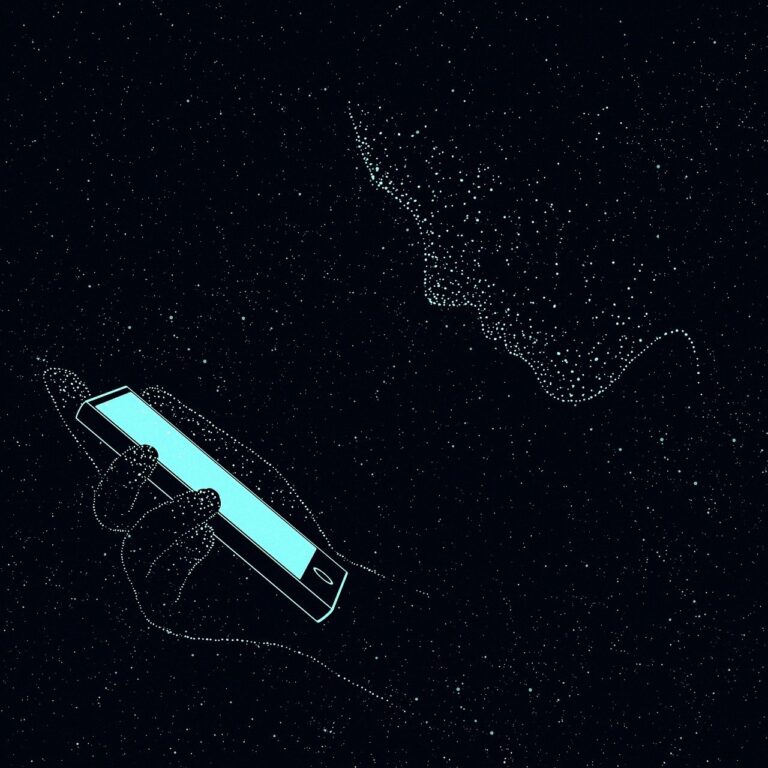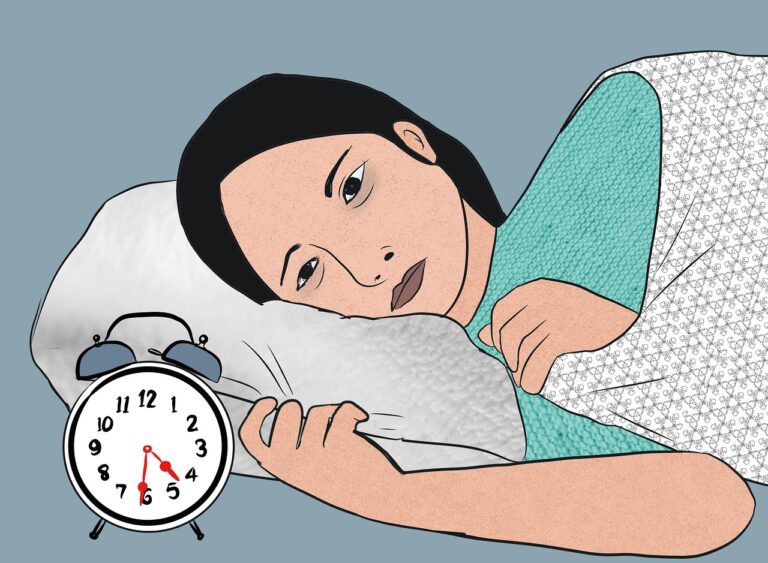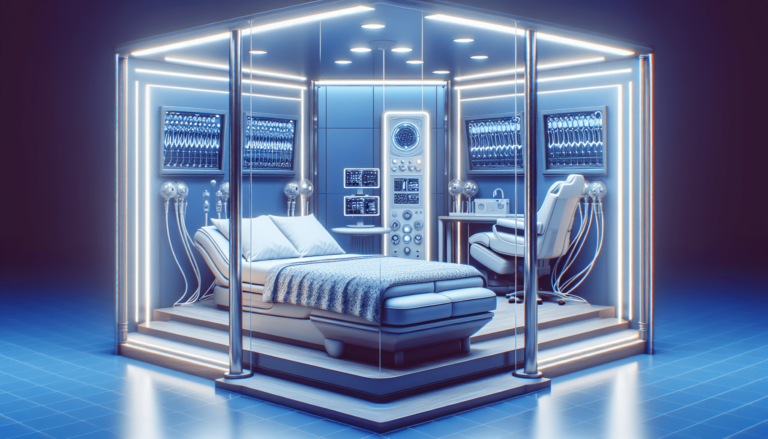How Does Restless Leg Syndrome Affect Sleep Patterns In Adults?

Restless Leg Syndrome (RLS) can significantly disrupt sleep patterns in adults, causing fragmented and restless nights. The condition, characterized by an uncontrollable urge to move the legs, typically leads to large amounts of sleep disruption. This results in frequent awakenings and difficulty in maintaining deep, restorative sleep. Managing RLS effectively can help mitigate these sleep disturbances and greatly improve your overall quality of life. For an accurate diagnosis and tailored treatment plan for RLS or any other sleep disorders, look no further than Vector Sleep Diagnostic Center. Led by Dr. Dmitriy Kolesnik, a board-certified sleep medicine specialist with over two decades of experience, the center is dedicated to offering personalized, compassionate care. With a strong commitment to clinical excellence and patient support, Vector Sleep Diagnostic Center serves as a beacon of hope for those striving for better sleep health. Have you ever lain in bed, ready for a good night’s sleep, only to be kept awake by an irresistible urge to move your legs? If so, you might be dealing with Restless Leg Syndrome (RLS). This neurological condition, known for its compelling need to move your legs, especially when at rest, can seriously disrupt sleep patterns. But how exactly does RLS affect sleep in adults? Let’s dive into the intricacies of this syndrome and explore its impact on your nightly rest.

What is Restless Leg Syndrome (RLS)?
Restless Leg Syndrome, often abbreviated as RLS, is a condition marked by an overwhelming urge to move the legs. This sensation typically arises during periods of inactivity, such as when you’re sitting or lying down. The urge often becomes more intense in the evening or nighttime, making it a major culprit in sleep disturbances.
Symptoms of RLS
RLS symptoms vary, but they generally include:
- Itchy, crawling, or throbbing sensations in the legs: These uncomfortable feelings are often described as akin to insects crawling under the skin.
- An urge to move the legs: Movement brings temporary relief but does not eliminate the underlying discomfort.
- Worsening symptoms at night: Symptoms tend to be milder during the day and peak during the evening or night, making it hard to fall asleep or stay asleep.
How Does RLS Affect Sleep Patterns in Adults?
When it comes to sleep, RLS can become a significant hurdle. The impacts are multifaceted and can severely disrupt both the quality and quantity of your sleep.
Difficulty Falling Asleep
The sensations in your legs tend to peak during the night, making it hard to relax and fall asleep. You may find yourself tossing and turning in bed, trying to find a position where the sensations stop. Unfortunately, this struggle can prolong the time it takes to fall asleep.
Frequent Night Awakenings
Even if you manage to fall asleep, RLS can cause you to wake up frequently during the night. These awakenings occur because the uncomfortable sensations and urge to move return, waking you up and compelling you to move your legs once again. This cycle can repeat multiple times through the night.
Reduced Sleep Duration
Frequent awakenings naturally reduce the total duration of sleep you get each night. Adults generally need between 7 to 9 hours of sleep for optimal health. However, those with RLS may find themselves getting significantly less sleep, impacting their ability to function during the day.
Poor Sleep Quality
Because of the intermittent awakenings and difficulty in falling back asleep each time, the overall quality of sleep suffers. You may be in bed for several hours, but the fragmented sleep doesn’t allow for the restorative processes that your body and mind need.
Impact on Sleep Stages
Sleep consists of different stages, including light sleep, deep sleep, and REM (Rapid Eye Movement) sleep. Each stage plays a unique role in maintaining your overall health. RLS interrupts these vital stages, particularly deep sleep and REM sleep, which are crucial for physical restoration and cognitive function.
Daytime Fatigue and Sleepiness
One of the most noticeable effects of RLS-induced sleep disturbance is daytime fatigue. You might feel groggy, sluggish, and sleepy throughout the day. This not only impacts your productivity but also affects your mood, making you more susceptible to irritability and stress.
Long-Term Health Consequences
Chronic sleep deprivation can lead to severe health issues, including:
- Heart disease
- Diabetes
- Obesity
- Mental health disorders, such as anxiety and depression
- Cognitive decline
Addressing RLS and its impact on sleep is thus crucial for long-term health and well-being.
Diagnosing Restless Leg Syndrome
Accurate diagnosis is the first step toward effective management. Diagnosing RLS primarily involves a clinical evaluation based on your medical history and symptom description.
Key Diagnostic Criteria
Doctors look for several key criteria when diagnosing RLS:
- An urge to move the legs, usually accompanied by uncomfortable sensations
- Symptoms that start or worsen during periods of rest
- Partial or temporary relief from discomfort with movement
- Worsening symptoms in the evening or night
- No other medical or behavioral conditions that could be causing the symptoms
Additional Tests
While there is no specific test for RLS, your healthcare provider may recommend blood tests to rule out other conditions, such as iron deficiency or kidney problems, that could be contributing to your symptoms.
Treatment Options for Restless Leg Syndrome
Though there’s no cure for RLS, several treatment options can help manage the symptoms and improve sleep quality.
Lifestyle Changes
Simple lifestyle modifications can sometimes offer significant relief:
- Exercise: Regular, moderate exercise can help alleviate RLS symptoms. However, avoid vigorous exercise close to bedtime.
- Dietary Adjustments: Reducing caffeine, alcohol, and nicotine can be beneficial.
- Sleep Hygiene: Maintain a regular sleep schedule, create a comfortable sleep environment, and practice relaxation techniques before bed.
Medications
For more severe cases, medications may be necessary. These can include:
- Dopaminergic Agents: These drugs increase dopamine levels in the brain and can ease RLS symptoms.
- Gabapentin and Pregabalin: Originally used for epilepsy, these medications can also help manage RLS.
- Opioids: These may be prescribed for severe RLS when other treatments fail, but their potential for dependency must be carefully monitored.
- Iron Supplements: If iron deficiency is detected, iron supplements might be recommended.
Non-Pharmacological Treatments
Other therapies include:
- Pneumatic Compression Devices: These improve blood flow and can reduce RLS symptoms.
- Transcutaneous Electrical Nerve Stimulation (TENS): This method uses low-voltage electrical current to provide relief.
- Massage and Hot/Cold Therapy: Regular leg massages and alternating hot and cold packs may also help.
Now, let’s shift our focus to a beacon of hope for those suffering from sleep disorders, including RLS: Vector Sleep Diagnostic Center.
Vector Sleep Diagnostic Center: Where Expertise and Compassion Converge
If you’re struggling with sleep disturbances due to RLS or any other condition, expert guidance can make all the difference. At Vector Sleep Diagnostic Center, we combine cutting-edge technology with a heartfelt commitment to patient care to address your sleep concerns effectively.
Led by a Veteran Sleep Medicine Specialist
Our team at Vector Sleep Diagnostic Center is led by the highly esteemed Dr. Dmitriy Kolesnik. With over two decades of medical experience, Dr. Kolesnik is not just a board-certified sleep specialist; he is also certified in Psychiatry and Neurology by the American Board of Sleep Medicine.
Dr. Kolesnik’s Background and Expertise
Dr. Kolesnik began his illustrious career at St. Petersburg Medical School in Russia. Moving to New York in the early 1990s, he pursued further training and specialization. He has been serving as a Clinical Instructor in Neurology at the Weill Medical College of Cornell University since 2004, enriching his practice with the latest research and treatment methodologies.
A Legacy of Comprehensive Care
Dr. Kolesnik took on the role of Medical Director at Vector Sleep Diagnostic Center in 2009. Under his leadership, the center has embraced cutting-edge technologies and evidence-based practices to diagnose and treat a wide range of sleep disorders. The entire staff shares his commitment to providing personalized, effective, and compassionate care to all patients.
Our mission is to become the definitive resource for sleep health, guided by principles of ethical patient care and clinical innovation. We aim to provide unmatched patient support and diagnostic excellence for those who suffer from sleep disorders, including RLS.
Contact Us Today
We invite you to experience the extraordinary level of care and expertise at Vector Sleep Diagnostic Center. Get in touch with us to schedule your initial consultation and take the first step toward better sleep health.
- Address: 26, 62-60 99th St, Rego Park, NY 11374
- Phone: (718)830-2800
- Email: vectorsleep@gmail.com
Why Choose Vector For Consultation and Education?
When you opt for consultation and education services at Vector, you’re placing your sleep health in the hands of board-certified sleep specialists equipped with the latest knowledge and technologies. We are committed to helping you identify, understand, and manage your sleep disorders for improved quality of life.
Sleep Consultation: Your First Step Toward Better Sleep
Your initial sleep consultation at Vector is a comprehensive evaluation that will typically last for about an hour. This session includes a detailed discussion about your sleep history, lifestyle, and any symptoms you might be experiencing. Preliminary tests or questionnaires may also be part of this session to help our specialists better understand your sleep patterns.
Specialized Evaluations
Our mission is to provide comprehensive, tailored solutions for a wide array of sleep disorders. If you’re grappling with sleep issues that require a detailed, specialized evaluation, you’ve come to the right place. Our specialized evaluations are meticulously designed to get to the root of your unique sleep problems, offering the most targeted and effective treatment plans.
Comprehensive Sleep Apnea Care
At Vector Sleep Diagnostic Center, we specialize in diagnosing and treating sleep apnea to help you achieve a better night’s rest. Our comprehensive services include CPAP Titration and Durable Medical Equipment (DME) Setup, designed to give you the most effective treatment tailored to your specific needs.
Insomnia Solutions
Welcome to Vector Sleep Diagnostic Center’s Insomnia Solutions—a cornerstone of our commitment to improving your sleep health. Insomnia can be a debilitating condition that seriously affects your quality of life. Our specialized evaluations and treatments are engineered to address the root causes of your insomnia, allowing you to finally enjoy restful nights.
Follow-Up and Continuous Care
At Vector Sleep Diagnostic Center, we believe that sleep health is a lifelong journey. Our follow-up and continuous care program is designed to provide you with a continuum of care, ensuring that your treatment remains effective and evolves with your needs.
Sleep Education: Empowering You For Lifelong Sleep Health
We believe that knowledge is power. At Vector, our sleep education program includes resources like:
| Resource Type | Description |
|---|---|
| Interactive Workshops | Learn strategies to improve sleep hygiene and manage sleep disorders. |
| Educational Brochures | Easy-to-read guides that break down complex sleep topics into digestible information. |
| Online Modules | Accessible educational content that you can peruse at your leisure. |
| One-on-One Counseling | Individual sessions with sleep specialists to address your specific sleep issues. |
Sleep Studies at Vector Sleep Diagnostic Center
Vector Sleep Diagnostic Center offers an array of sleep study services aimed at diagnosing and managing sleep disorders effectively. Our specialized approach ensures that you get the most accurate results, leading to a tailored treatment plan for your specific sleep issues. We offer a variety of sleep study options to best fit your needs, including:
- Overnight Polysomnography: A comprehensive sleep study that records brain waves, oxygen levels, heart rate, and breathing.
- Home Sleep Apnea Test: A more convenient option for diagnosing sleep apnea.
- Multiple Sleep Latency Test (MSLT): Measures how quickly you fall asleep in quiet environments during the day.
- Maintenance of Wakefulness Test (MWT): Assesses your ability to stay awake during the day.
- Specialized Pediatric Sleep Studies: Tailored for diagnosing sleep disorders in children.
Our Services Include
- Sleep Studies
- Sleep Apnea Care
- Insomnia Solutions
- Specialized Evaluations
- Consultation and Education
- Follow-Up and Continuous Care
By choosing our services, you are not just addressing your sleep disorder; you are embarking on a journey to improve your overall quality of life. Effective sleep is the foundation of good health, and at Vector Sleep Diagnostic Center, we are dedicated to helping you build that foundation.
In conclusion, Restless Leg Syndrome significantly impacts sleep patterns in adults by causing difficulty in falling asleep, frequent night awakenings, reduced sleep duration, and poor sleep quality. If you are struggling with RLS or any other sleep disorder, the Vector Sleep Diagnostic Center, led by the experienced Dr. Dmitriy Kolesnik, offers comprehensive and compassionate care to help you reclaim your nights and enhance your days. Don’t let RLS rob you of a good night’s sleep; reach out to Vector Sleep Diagnostic Center today and take the first step toward better sleep health. Your journey to restful nights and brighter days begins here.







